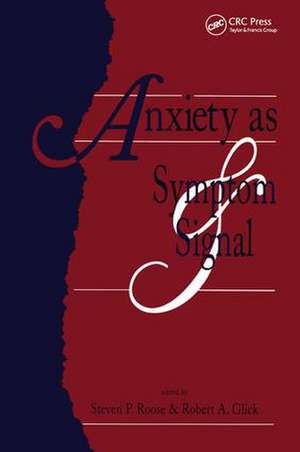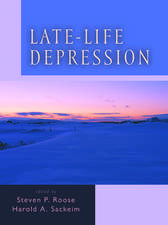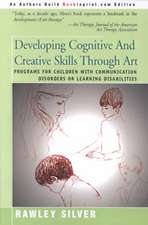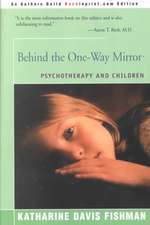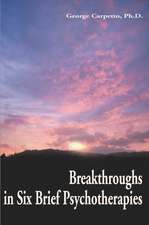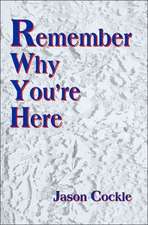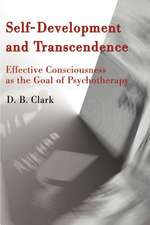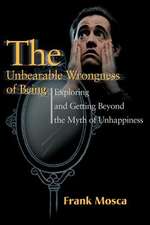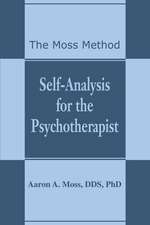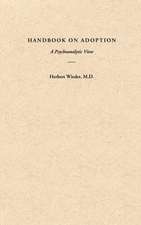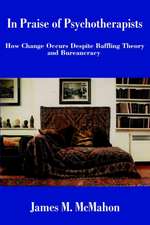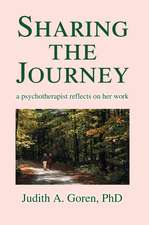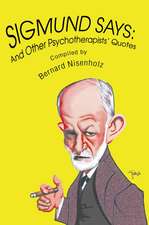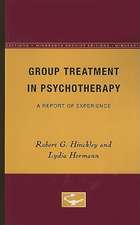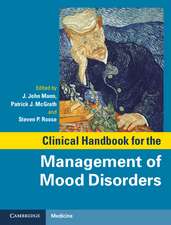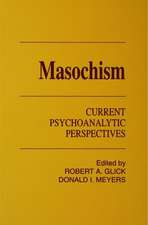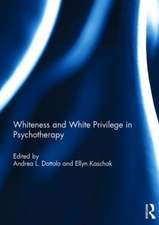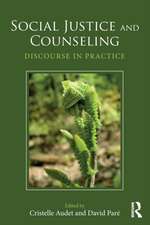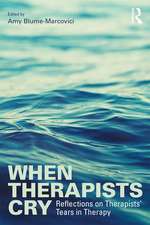Anxiety as Symptom and Signal
Editat de Steven P. Roose, Robert A. Glicken Limba Engleză Paperback – 21 ian 2019
The illuminating, readable collection will broaden clinicians' awareness of the diverse research findings that now inform our understanding of anxiety. No less importantly, it will deepen their appreciation of the richly variegated ways that anxiety can shape, and be shaped by, the clinical process.
Preț: 375.09 lei
Preț vechi: 394.83 lei
-5% Nou
Puncte Express: 563
Preț estimativ în valută:
71.77€ • 75.13$ • 59.74£
71.77€ • 75.13$ • 59.74£
Carte tipărită la comandă
Livrare economică 31 martie-14 aprilie
Preluare comenzi: 021 569.72.76
Specificații
ISBN-13: 9781138881563
ISBN-10: 1138881562
Pagini: 192
Dimensiuni: 152 x 229 x 18 mm
Greutate: 0.27 kg
Ediția:1
Editura: Taylor & Francis
Colecția Routledge
Locul publicării:Oxford, United Kingdom
ISBN-10: 1138881562
Pagini: 192
Dimensiuni: 152 x 229 x 18 mm
Greutate: 0.27 kg
Ediția:1
Editura: Taylor & Francis
Colecția Routledge
Locul publicării:Oxford, United Kingdom
Public țintă
Professional and Professional Practice & DevelopmentCuprins
Glick, Freudian and Post-Freudian Theories of Anxiety. Part I: Anxiety as Symptom: The Mind and the Brain. Hofer, An Evolutionary Perspective on Anxiety. Gorman, Papp, & Coplan, Neuroanatomy and Neurotransmitter Function in Panic Disorder. Fyer, Genetic and Temperamental Variations in Individual Predisposition to Anxiety. Dowling, The Ontogeny and Dynamics of Anxiety in Childhood. Part II: Anxiety as Signal: The Treatment Setting. Fogel, Learning to Be Anxious. Stern, Anxiety and Resistance to Changes in Self-Concept. Renik, The Patient's Anxiety, the Therapist's Anxiety, and the Therapeutic Process. Spezzano, A Relational Perspective on Anxiety. Roose, Does Anxiety Obstruct of Motivate Treatment? When to Talk, When to Prescribe, and When to do Both. Reis, Epilogue.
Notă biografică
Steven P. Roose, M.D., is a faculty member of the Columbia University Center for Psychoanalytic Training and Research, and Associate Professor of Clinical Psychiatry at the Columbia University College of Physicians and Surgeons.
Robert A. Glick, M.D., is a Training and Supervising Analyst at the Columbia University Center for Psychoanalytic Training and Research, and Clinical Professor of Psychiatry at the Columbia University College of Physicians and Surgeons.
Robert A. Glick, M.D., is a Training and Supervising Analyst at the Columbia University Center for Psychoanalytic Training and Research, and Clinical Professor of Psychiatry at the Columbia University College of Physicians and Surgeons.
Recenzii
"While multiauthored books often provide ambiguous or uneven information about a certain subject, Anxiety as Symptom and Signal is a tightly structured and brilliantly achieved synthesis of our knowledge regarding the biological, psychodynamic, and psychosocial aspects of anxiety as a basic response to danger. The evolving concept of anxiety has immediate relevance for the relationship between psychoanalytic and psychopharmacological approaches to treatment, and this book offers exciting information to the practicing clinician as well as to the researcher and theoretician in this vast field."
- Otto Kernberg, M.D., Professor of Psychiatry, Cornell University Medical College
"The editors of Anxiety as Symptom and Signal have done a marvelous job of compiling a series of papers that brings the reader up to date on current thinking about anxiety. The papers range from modern neurobiological studies of anxiety to the most recent psychoanalytic contributions to the subject. Any clinician who is truly interested in the integration of neurobiology and psychoanalysis will find this book invaluable."
Martin S. Willick, M.D., Training and Supervising Analyst, New York Psychoanalytic Institute
- Otto Kernberg, M.D., Professor of Psychiatry, Cornell University Medical College
"The editors of Anxiety as Symptom and Signal have done a marvelous job of compiling a series of papers that brings the reader up to date on current thinking about anxiety. The papers range from modern neurobiological studies of anxiety to the most recent psychoanalytic contributions to the subject. Any clinician who is truly interested in the integration of neurobiology and psychoanalysis will find this book invaluable."
Martin S. Willick, M.D., Training and Supervising Analyst, New York Psychoanalytic Institute
